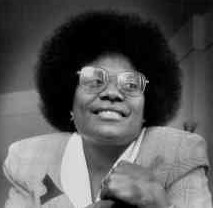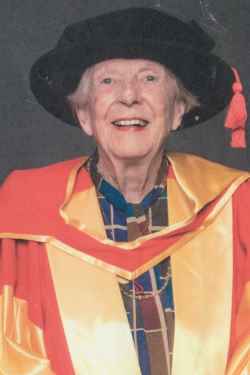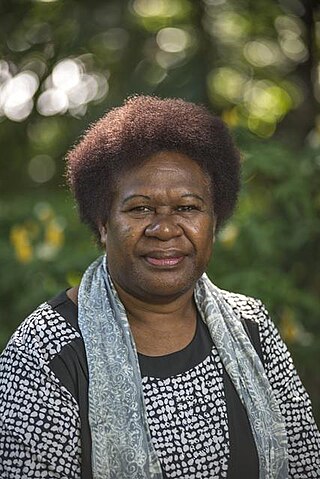Related Research Articles

Papua New Guinea is a country in Oceania that comprises the eastern half of the island of New Guinea and its offshore islands in Melanesia. Officially the Independent State of Papua New Guinea, it shares its only land border with Indonesia to the west and it is directly adjacent to Australia to the south and the Solomon Islands to the east. Its capital, located along its southeastern coast, is Port Moresby. The country is the world's third largest island country, with an area of 462,840 km2 (178,700 sq mi).

For administrative purposes, Papua New Guinea is divided into administrative divisions called provinces. There are 22 provincial-level divisions, which include 20 provinces, the Autonomous Region of Bougainville, and the National Capital District of Port Moresby.

Papua New Guinea together with the West Papua region of Indonesia make up a major tropical wilderness area that still contains 5% of the original and untouched tropical high-biodiversity terrestrial ecosystems. PNG in itself contains over 5% of the world's biodiversity in less than 1% of the world's total land area. The flora of New Guinea is unique because it has two sources of origin; the Gondwana flora from the south and flora with Asian origin from the west. As a result, New Guinea shares major family and genera with Australia and the East Asia, but is rich in local endemic species. The endemicity is a result of mountainous isolation, topographic and soil habitat heterogeneity, high forest disturbance rates and abundant aseasonal rainfall year round. PNG boasts some 15–21,000 higher plants, 3,000 species of orchids, 800 species of coral, 600 species of fish, 250 species of mammals and 760 species of birds and 8 species of tree-kangaroos out of which 84 genera of animals are endemic. Ecosystems range from lowland forests to montane forests, alpine flora down to coastal areas which contains some of the most extensive pristine mangrove areas in the world. Much of this biodiversity has remained intact for thousands of years because the ruggedness of the terrain made the interior lands inaccessible; furthermore low population density and restrictions on the effectiveness of traditional tools, ensured that these biodiversity was never overexploited.

Sir Michael Thomas Somare was a Papua New Guinean politician. Widely called the "father of the nation", he was the first Prime Minister after independence. At the time of his death, Somare was also the longest-serving prime minister, having been in office for 17 years over three separate terms: from 1975 to 1980; from 1982 to 1985; and from 2002 to 2011. His political career spanned from 1968 until his retirement in 2017. Besides serving as PM, he was minister of foreign affairs, leader of the opposition and governor of East Sepik Province.
The Frieda River Project is a large open cast mine and associated infrastructure in the Sandaun and East Sepik Provinces of Papua New Guinea. The mine is located along a tributary of the Sepik River. The deposit is a large copper-gold porphyry deposit. The project includes a hydroelectric scheme to provide electricity. and service by the Frieda River Airport. In 2010, the mine had estimated reserves of 14.3 million oz of gold.

The Sepik is the longest river on the island of New Guinea, and the second largest in Oceania by discharge volume after the Fly River. The majority of the river flows through the Papua New Guinea (PNG) provinces of Sandaun and East Sepik, with a small section flowing through the Indonesian province of Papua.

Deforestation in Papua New Guinea has been extensive and in recent decades from 2001 to 2020, Papua New Guinea (PNG) lost 1.57Mha of tree cover, equivalent to a 3.7% decrease in tree cover since 2000, and 1.15Gt of CO₂e emissions.
Kerevat is a town and seat of Gazelle District in East New Britain Province, on the island of New Britain, Papua New Guinea. It is home to a prison, the Kerevat National High School, the Kerevat Education Centre, and the Cocoa and Coconut Research Institute. Its principal crop is cocoa. An airfield was constructed here by the Imperial Japanese in World War II during September 1943.
Tent City (Tent siti) is a suburb of Lae in the Morobe Province, Papua New Guinea. The main campus for the Papua New Guinea University of Technology is located 1 kilometre to the South of Tent City.
The following lists events that happened during 2016 in Papua New Guinea.
Events in the year 2021 in Papua New Guinea.
Fiona Sonia Karejo Hukula is a Papua New Guinean activist. She advocates against gender-based violence, including women accused of witchcraft or sorcery.
Tessie Soi is known throughout Papua New Guinea (PNG) as the founder of Friends Foundation. This organization supports people who have HIV/AIDS. She later became involved in supporting victims of family and sexual violence.

Margaret Nakikus was the first Papua New Guinean woman to head that country's National Planning Office. She is also known as the wife of Rabbie Namaliu, who was Papua New Guinea's prime minister between 1988 and 1992.

Ellen Maev O'Collins, MBE was an Australian social worker by training, who became Emeritus Professor in the Department of Anthropology and Sociology at the University of Papua New Guinea.
Jane Mogina is a Papua New Guinea biodiversity specialist. After working as a lecturer at the University of Papua New Guinea, she became the executive director of the Mama Graun Conservation Trust before, in 2012, joining ExxonMobil as a biodiversity adviser. In 2017, a previously unknown damselfly was discovered as a result of her company's biodiversity monitoring and was named Nososticta moginae, after her.
Michelle Nayahamui Rooney has dual Papua New Guinean and Australian nationality. She is a research fellow at the Development Policy Centre of the Australian National University and publishes extensively on matters relating to Papua New Guinea (PNG) and the Pacific islands.

Jane Kesno is from Papua New Guinea (PNG). She is the founder and chair of the PNG Women and Children's Rights Centre and co-founder of the Coalition of Public Sector Women in Leadership. She is a member of the board of the Australian Aid project, Pacific Women Shaping Pacific Development.
Susan Setae is a women's rights advocate from Papua New Guinea (PNG). She is the president of the PNG Counselling Association and former president of the National Council of Women.
Sarah Garap is a prominent community development worker and human rights activist in the Highlands of Papua New Guinea (PNG).
References
- 1 2 "HELP Resources and Pacific Peoples' Partnership Collaborate to Strengthen Sepik Women Market and Street Vendors' Collective Voice in Shaping Informal Economy Development". Pacific Peoples´Partnership. Retrieved 11 October 2021.
- 1 2 3 "Elizabeth Cox". LinkedIn. Retrieved 11 October 2021.
- ↑ Cox, Elizabeth. "Submission to the Review of Australian Broadcasting Services in the Asia Pacific" (PDF). Australian Government. Retrieved 11 October 2021.
- ↑ "Papua New Guinea Activists Highlight Australia's Role in Human Rights Violations". IWRaw Asia Pacific. Retrieved 11 October 2021.
- ↑ "Women market vendors suffer because of gender inequalities". Saipan Tribune. Retrieved 11 October 2021.
- ↑ "Elizabeth Cox". UNRISD. Retrieved 11 October 2021.
- ↑ "HELP Resources: Profile, October 2002". Help Resources. Retrieved 11 October 2021.